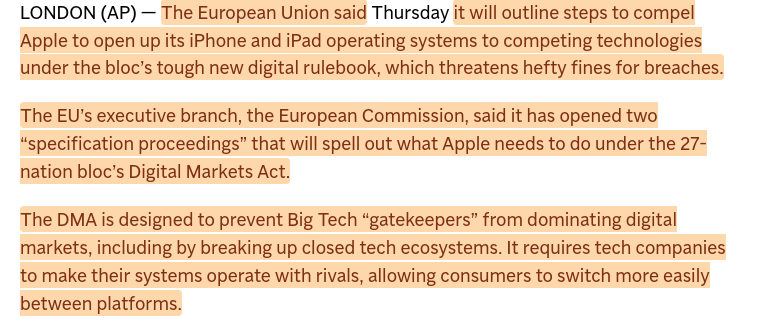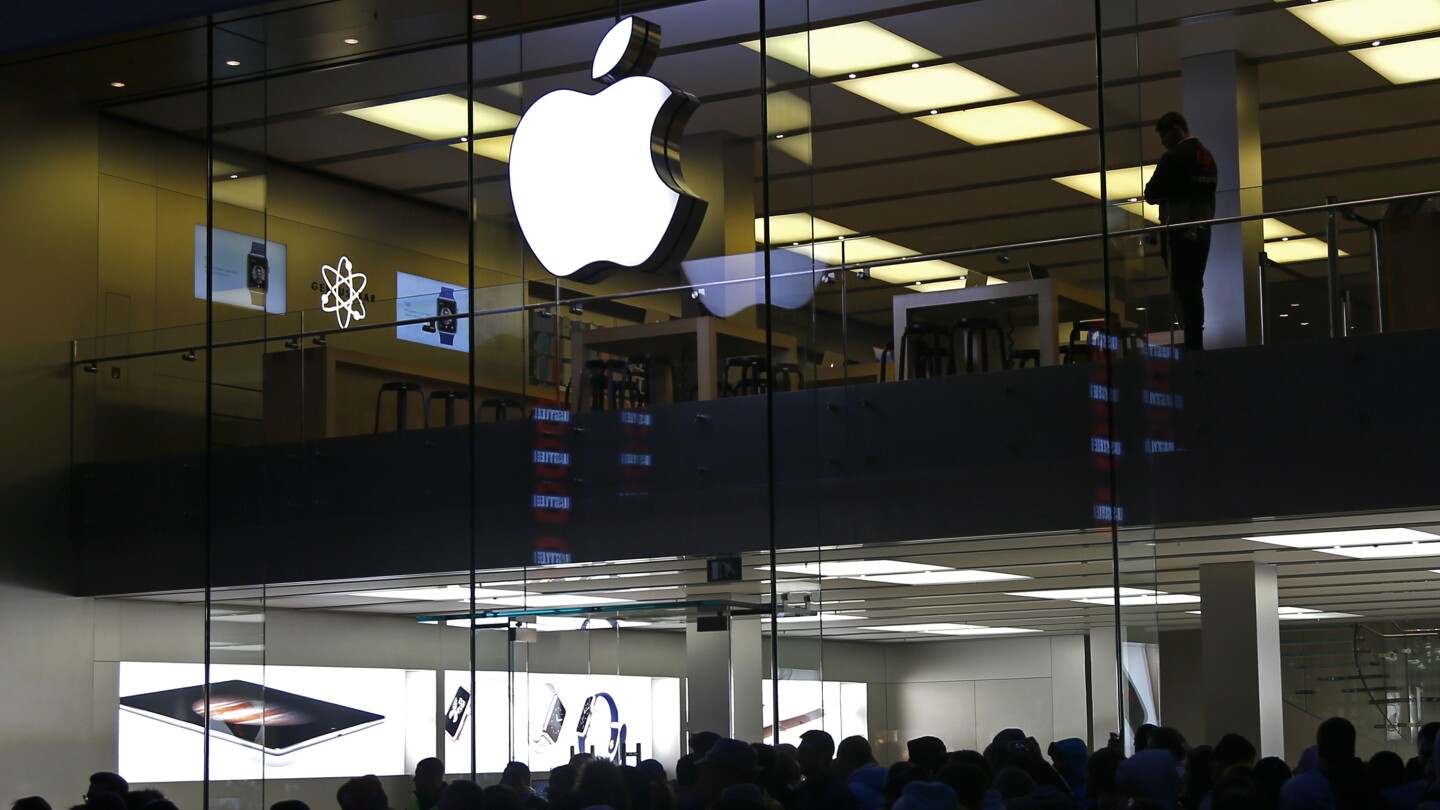An erra is to come to an end as the Eu says enough is enough and introduces new rules and hefty fines.

Let’s go one further and compel Apple, Microsoft, and Google to open source their entire operating systems. :)
I am almost certain there would be two major impacts from that. The first being that operating system development would slow to the pace that the community wishes instead of having big money behind it. And the second is that security updates would come quite a bit faster.
Edit: I figure brand new major features would be slower in coming. But security would be improved.
Open source doesn’t mean open source development. But yes on the bugfixes
I figure brand new major features would be slower in coming. But security would be improved.
I feel there’s going to be an element of “old man yells at cloud” here, but that isn’t inherently a bad thing. I just use Windows at work at the moment but there’s very little I do in Windows that I couldn’t do as far back as Windows XP as long as driver support kept up. I don’t use it for the OS, the OS just enables me to use the applications I need.
Same with MacOS. I know Apple always act like every minor enhancement is the greatest thing ever (look, we added Tabs to Finder 🤩), but ultimately the OS is there to act as the pathway between my applications and my hardware.
If the focus switched from features to security, would we really lose anything of value? At a minimum I wouldn’t have family contacting me cause their PC looks different than it did previously (looking at you centralised Windows taskbar 👀).
I agree. That definitely would not be the worst thing ever.
The operating system that runs most servers, a lot of them doing web cloud and networking, with high levels of security (developed by security companies) is open source, the *BSD distributions and also Linux.
But I also have doubts if this is the right move.But I also have doubts if this is the right move
Can you share those and the reasoning, please?
Sorry for replying late.
iOS is a key component in apple’s business and I’m not sure this won’t set a precedent. I think we need competitiveness in industry, albeit a fair one.No worries, and that actually makes sense, now that you mention it. Thank you for your reply.
What does it mean to “open up” an operating system in this context? Do they mean something like the possibility to intall other OSes on their devices, or that the app stores needs to be more open? I’m guessing it does not mean they have to start open source:ing parts of the OS… or?
Probably to allow proper sideloading of apps, instead of the contrived bullshit they already tried to pull.
What they’ve done can be described as nothing other than malicious non-compliance and the EU has been dragging their feet on enforcement.
I would love if device makers were forced to open up their hardware to other OSs. Unlockable bootloaders for all as well as allowing users to install their own signing keys so secure boot can remain enabled.
Granted, there would still be black box firmware required to use half the components inside, but that’s another battle.
This should be a right of the consumer that purchased the hardware. Same goes for gaming consoles. You used to be able to officially install Linux on a PlayStation.
“But we’re selling the hardware at a loss, so letting you own what you paid for would break our crappy business model” /s
That didn’t force Value to lock down the Steam Deck.
I’d be okay with it even if it were on a time delay.
Like if device manufacturers had to publish their software in order to no longer officially support the device that would be a welcome compromise and at least a step in the right direction right?
Yes I think we this in addition to be able to unlock the boot loader. This allows the community to continue to provide security updates after the company abandoned the product through planned obsolescence.
Yeah agreed to an extent but I would say a massive portion of those who installed linux attempted to pirate games. It makes sense to block it.
I’d prefer to mandate that they allow other stores on the consoles or mandate no advertisements or promotions on the console.
That’s a lie.
The original Sony feature did not give access to all the hardware and thus it was not possible to play ps3 games on it.
Their ban actually motivated people to crack Sony’s measures and install Linux with full access to the hardware.
Well it wasnt a lie it was an estimation of the use, I ws in that scene then and it was intrinsically linked to homebrew. I am a proponent of piracy and feel that media should be collected and stored to ensure we dont lost content in the years to come. But I emulate and pirate loads of games and consoles.
From the last paragraph, it sounds like the intent is to make it easier to switch devices and services, which would be great
We are talking about lawmakers making this demand. They don’t have a fucking clue what the difference is between all these possibilities.
Rather than waiting around for the legal system to nanny me, I’ve gone ahead and committed to only purchase hardware that does not attempt to restrict me.
Such as Android, (which some these restrictions seem to be coming to Android to to an extent.)
The thing with AOSP though, that it has the potential to stand on its own, given a talented dev team behind it. I see this everywhere in the ROM communities. So actually Android is a great example, despite what a lot of people say about Google “monopoly”.
I think you and I have different thresholds for what counts as ‘not restricting the user’.
Hey EU! Microsoft is not letting me play Mario Odyssey on their closed system!! Fix it!
Hey comment section I forgot to add the URL to this post before posting it earlier today, I added it in now.
Let’s make them open up their hardware instead with all the software or documentation needed to run it and have them compete with aftermarket operating systems.
Damn… this is the first time I don’t agree with the outcome of an EU decision regarding Apple.
Why not? Opening up a system to competition usually makes it better, no?
Their stuff is designed to specifically work with their stuff, and that’s a big part of their IP.
The I in IP stands for intelectual; AKA, the clever things they reached with their thoughts. The artificial limitations are not IP, simply mechanisms they included exclusivity. They needn’t be clever. if (!apple) { rejectApp(); hideDocs() } is not IP.
Apple opening up would makes to mean toward them more. Still, I’m only going to get a new phone after 2026, after the EU’s battery mandate in force.






